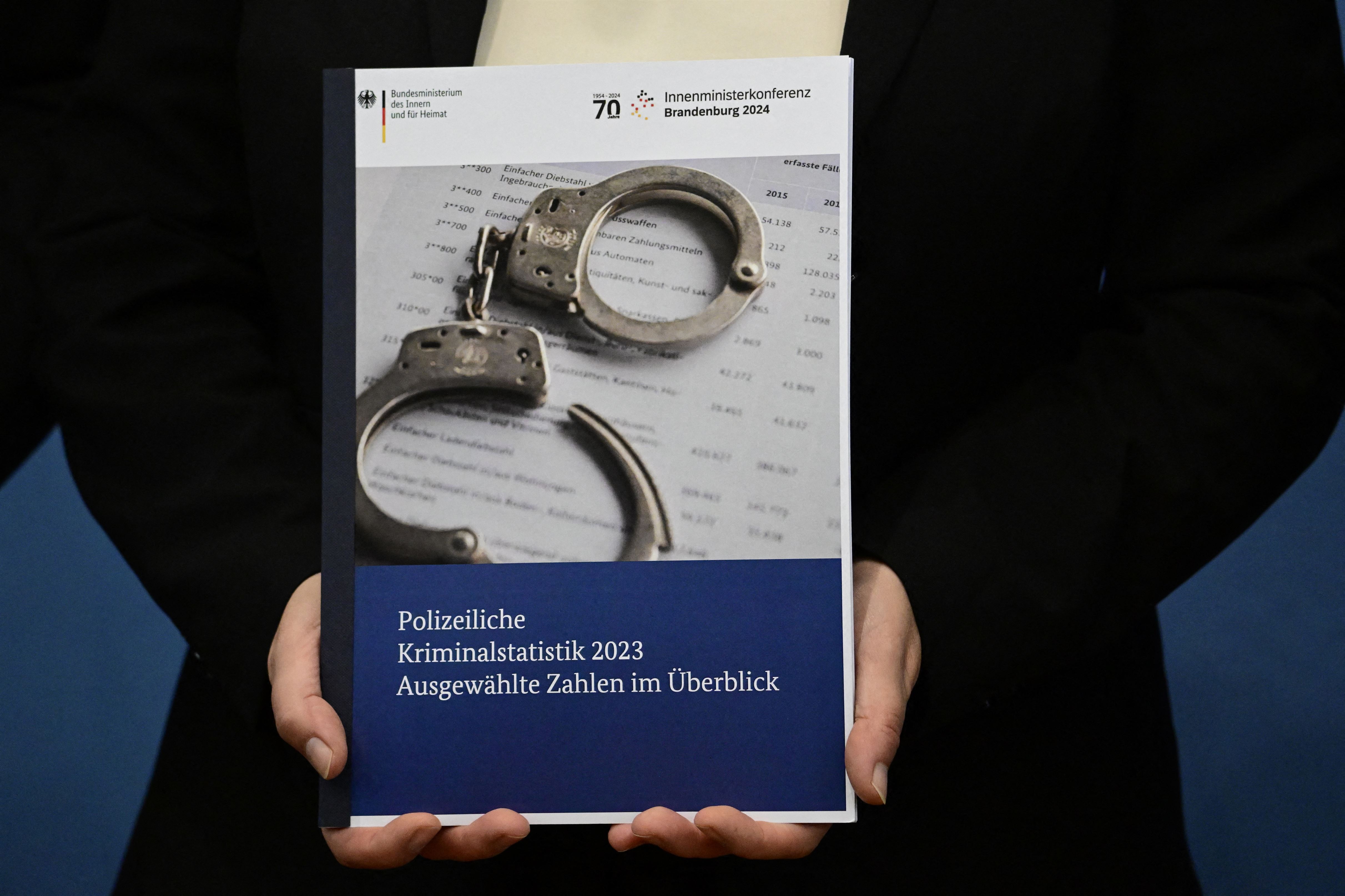
BERLIN - Crime in Europe's largest economy has peaked at its highest level since 2016, German authorities announced this week.
A report published by the Federal Criminal Police Office on Tuesday registered a 5.5 percent year-on-year increase in crimes in Germany, to 5.94 million cases in 2023.
There was a particularly sharp rise in the number of children, teenagers and foreigners among criminal suspects. These figures were up by 12 percent, 9.5 percent, and 13.5 percent respectively, according to the report
Violent crimes rose particularly sharply, the report said, by 8.6 percent to 214,099 cases.
"It is important to me that the rule of law takes tough action against violence. Zero tolerance applies here," Federal Minister of the Interior Nancy Faeser said when presenting the report.
There was a particularly sharp rise in the number of children, teenagers and foreigners among criminal suspects. These figures were up by 12 percent, 9.5 percent, and 13.5 percent respectively, according to the report.
"Foreign offenders must leave Germany much more quickly. The strict deportation rules we have created must now be enforced," Faeser stressed.
After Germany saw record immigration figures in 2022, the government introduced various regulatory measures. These included stricter border controls to prevent illegal entries, as well as a reduction in financial incentives.

During the UEFA European Championship 2024, which will take place across Germany this summer, border controls are to be tightened even further. The move was announced recently by Faeser in response to the terrorist attack that killed over 140 people in Russia last month.
In addition to the threat of terrorism, Germany has also seen an increase in other extremist crimes in recent years. Right-wing extremist views in particular are becoming more widespread, with 8 percent of people holding such views, according to a survey published by the Friedrich Ebert Foundation last year.
Therefore, politicians are warning against overestimating the increase in crimes committed by foreigners.
"The disproportionate number of foreign suspects is worrying, but must not lead to general suspicion," said Michael Stuebgen, Brandenburg's Interior Minister, on Tuesday.


